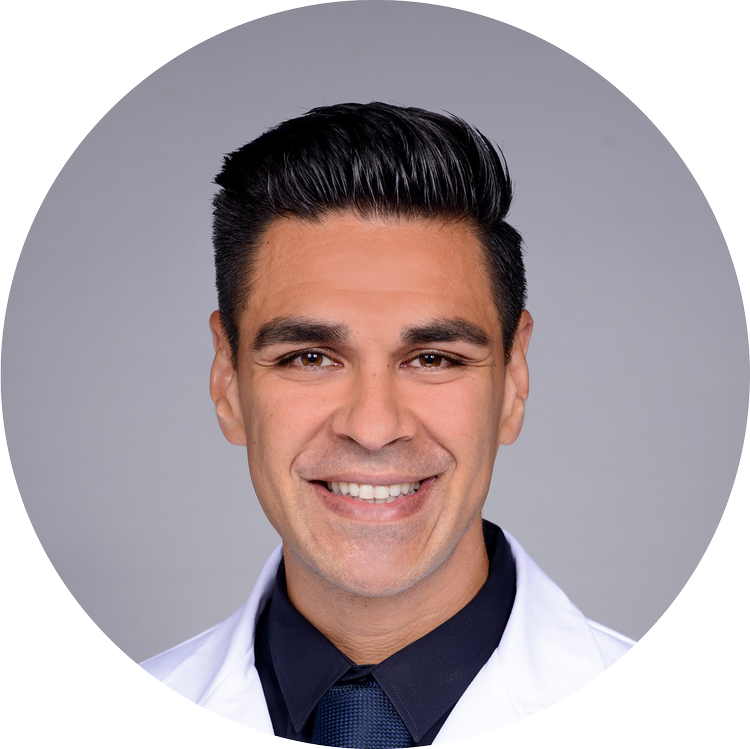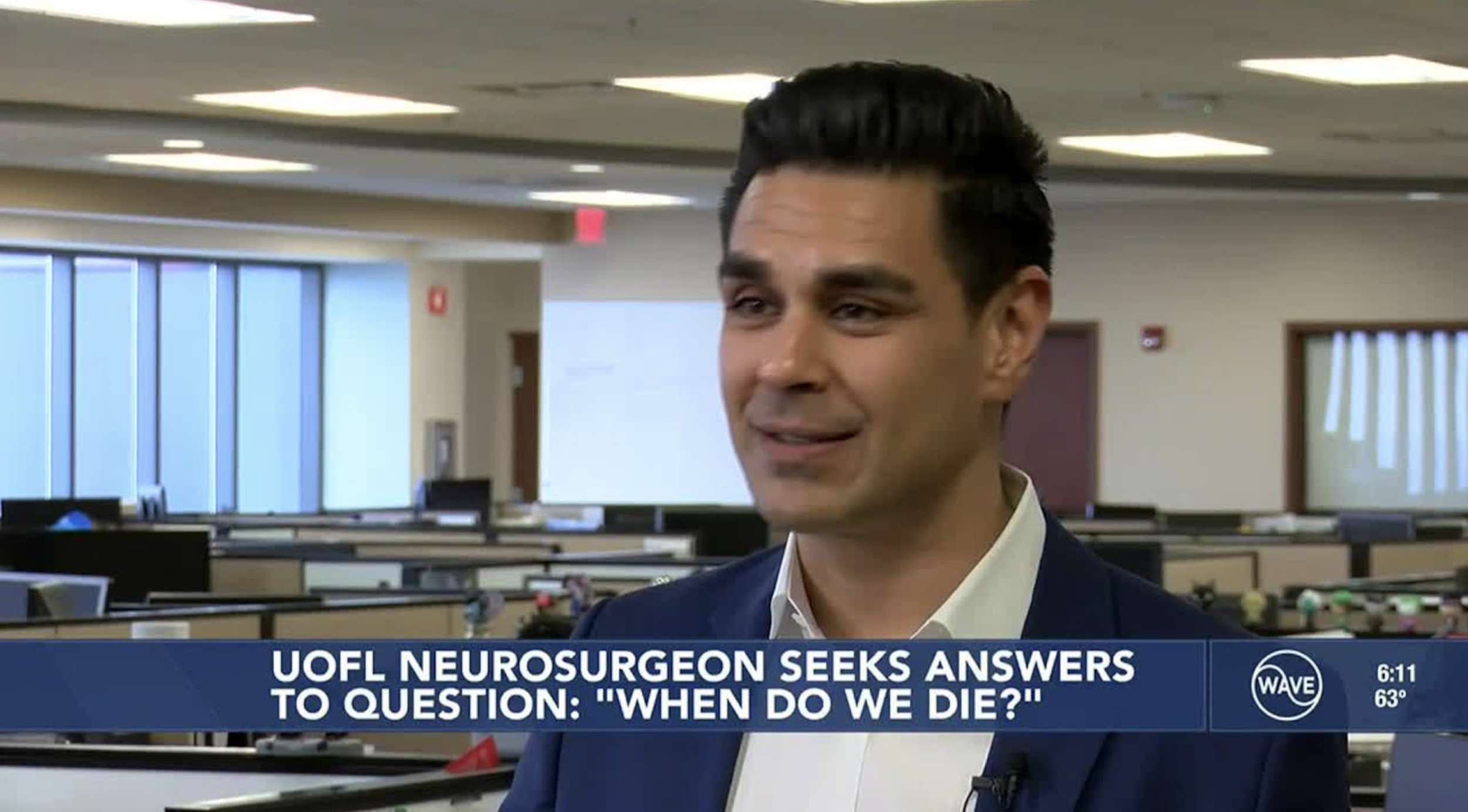Lessons From the Dying Brian: Dr. Ajmal Zemmar’s Unplanned Scientific Breakthrough
Dr. Ajmal Zemmar.
Coming to Louisville was never part of the plan for Dr. Ajmal Zemmar. But then again, neither was his biggest scientific breakthrough.
Zemmar was born in Kabul, Afghanistan in 1983, in the midst of the country’s war with the Soviet Union. At age 6, his family fled from what had morphed into a deadly civil war and relocated to Bremen, Germany a mere three days before the fall of the Berlin Wall. Growing up in what he describes as one of Bremen’s less privileged neighborhoods, Zemmar had a dream of becoming a doctor - both out of a desire to help others and to gain a respect his family rarely received in Germany.
“I was often not treated the way you would want to be treated,” he said in an interview with Kentucky to the World. “Sometimes this was because of the color of my hair and the color of my skin. I learned pretty quickly that if you want to be treated differently, you have to have a job that's respected in society. I never saw anybody treating a physician that way.”
So, upon his graduation from high school, Zemmar began medical school at Goethe University in Frankfurt, Germany, where he quickly discovered a fascination with the body’s most complex organ: the brain. After four years of medical school, Zemmar earned a Ph.D. in Neuroscience through a Swiss-Canadian joint program that split his time between Zurich and Vancouver. After obtaining his Ph.D., he completed a fellowship in Functional Neurosurgery in Toronto, Canada, where he specialized in manipulating the body’s nervous system to treat neurological disorders. With his family in Europe and his training split between Switzerland and Canada, immigrating to the U.S. wasn’t even a blip on Zemmar’s radar. That is, until a job offer in Louisville, KY changed his plans.
A MATTER OF LIFE AND DEATH
At the University of Louisville Hospital, Zemmar’s primary job was as a neurosurgeon, performing delicate surgeries on patients suffering from conditions like epilepsy, Parkinson’s disease, and chronic pain. And while the surgeries are often long and complex, Zemmar says the most intense parts of the job often occur outside of the operating room.
“The operating room may be the calmest place on earth,” Zemmar said. “You are focused on completing the task and keeping the patients safe. When you leave the surgical room or before you enter the surgical room, that’s when a lot of the emotions happen. One of the most rewarding feelings I have is…when the surgery is successful, you get to tell [the patient’s family members] about it. That feeling you get from them, the weight that’s lifted off their shoulders, that’s something that’s indescribable.”
Image courtesy of @drajmalzemmar on Instagram.
But as a surgeon, loss is an inevitable part of the job - an experience that has irrevocably altered his perspective on life.
“One thing you learn quickly on this job is how quickly life can end,” Zemmar said. “Part of our job is that we unfortunately sometimes see gunshots, car accidents, incurable brain tumors, people who wake up in the morning and did not think that life would be over by the evening…That did change my way of life, and it makes you realize that life is not for granted.”
ACCIDENTAL LESSONS FROM THE DYING BRAIN
Though the losses never get easier, Zemmar has found there are lessons to be learned from each one. And much like his move to Kentucky, the biggest lesson came as a surprise.
In 2016, Zemmar was treating an 87-year-old patient who had developed epilepsy after a procedure. To determine the source of the seizures, Zemmar and his team applied EEG electrodes to the patient’s head. As they were recording the patient’s brain activity, the man unexpectedly had a heart attack and passed away.
Without meaning to, Zemmar’s team had just obtained the first-ever record of a dying brain.
Image courtesy of Wave 3 News.
As Zemmar and his team studied the recordings, they found something interesting: an increase in gamma waves, brain waves involved in cognitive functions like conscious perception and memory flashbacks, in the 30 seconds after blood flow to the brain had ended. What’s more, the brain’s other waves including alpha, theta, delta, and beta fired in a coordinated rhythm, suggesting that they were seeing more than just neurons firing as they died. Zemmar’s conclusion? The old adage of “your life flashing before your eyes” before death was likely true.
“Through generating oscillations involved in memory retrieval, the brain may be playing a last recall of important life events just before we die, similar to the ones reported in near-death experiences,” Zemmar said in an interview with UofL News.
Zemmar held off on publishing his findings until 2022, as he hoped to find other recordings of similar experiences. But despite a 5-year search, the team was unable to find another recording of a dying brain - demonstrating just how difficult it is to obtain this type of data.
“You can't predict the time or process of the occurrence of death in a patient in a hospital,” Zemmar said in an interview with Kentucky to the World. “If you go to a palliative care unit, even there, we can't predict when a patient is going to die. And in that scenario, it's different because you're withdrawing food, you're giving the patient medication to make them comfortable. All of that changes the natural progression of death. It's very difficult, in a nutshell, to plan.”
TO DIE WELL, LIVE WELL
For Zemmar, the experience has been not only enlightening, but a reason for hope - especially when his patients and their loved ones are grappling with death.
“Death is not this black box, horrible, suffering place that you're going to,” he said. “In that immensely difficult time, if you can explain that they’re not in a bad place, they’re not suffering, they’re replaying some of the memorable events of their life…it does, psychologically and emotionally, give them a glimpse of something to hold on to.”
What’s more, Zemmar believes that a greater understanding of death should make us all want to live well.
“The question is…how do you want to live [life] to be able to create those memories when you're going to die? I think that's a beautiful turnaround of perhaps living more in the moment…and creating more memories for your own life - because you know one day, it's going to end.”
Join Kentucky to the World and the Kentucky Science Center on October 16, 2025 for Echoes of Life: Lessons from the Dying Brain. This immersive program will offer insight into Dr. Zemmar’s globally recognized research and the profound ethical, emotional, and scientific questions it raises. This is more than a science story—it’s the heartbeat of Kentucky innovation.





